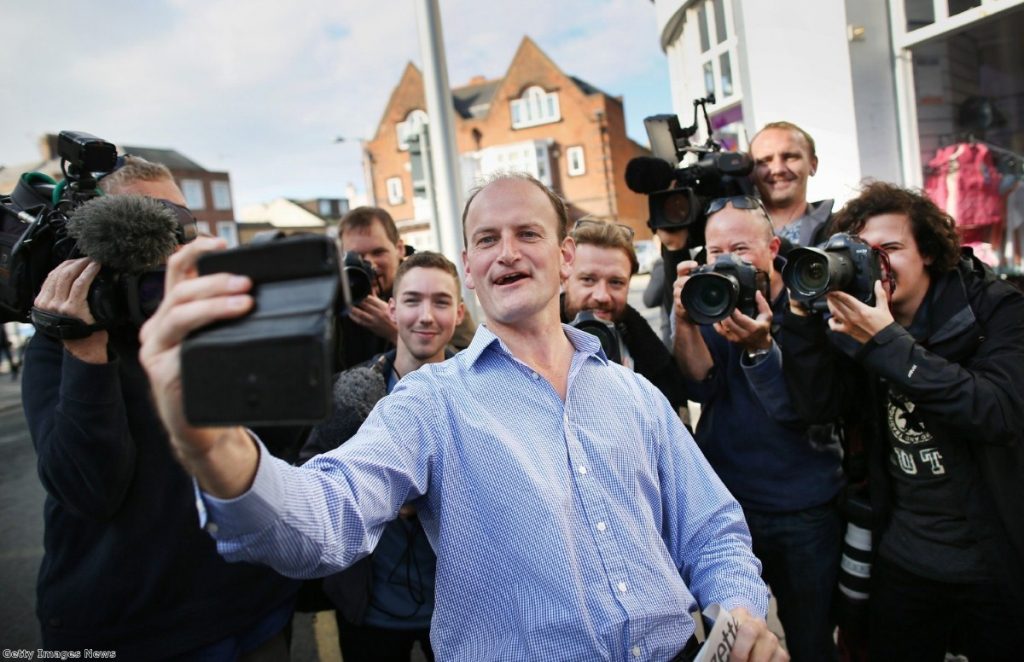Revealed: How immigrants feel about the immigration debate
For all the time dedicated to the immigration debate in the papers and on TV, there is one voice you rarely hear from: immigrants themselves. No-one asks what their opinion is. No-one asks how the coverage affects them.
Migrant Voice has taken a step toward addressing this with research covering the impact of the immigration debate on those who have come to live here. It is startling. Those who once felt they belonged here are starting to feel as if they do not. They are exhausted. They feel as if they need to justify their existence every day.
I've been given the preliminary finding of the report, which is due to come out in a few weeks. The research was conducted between June and August, with migrants from a wide range of backgrounds using an online survey, one-to-one interviews and focus group sessions in Birmingham, Glasgow and London. A total of 182 people took part. They're mostly between 25 and 44 years old and have overwhelmingly been living in the UK over three years. The largest group was black African in origin – Nigeria was the most popular country – followed by white European and white other, with Poland and Slovakia leading the pack.
Once upon a time, things were more positive. Even now, the majority still feel they belong in the UK and are well integrated into society. As one said:


"I've been here for 25 years. And I feel this is home for me. I feel 100% British. And I feel I'm happy I took the decision to stay in this country. I have three children who are doing very well. So I feel this is a country of opportunities, where everyone who wants to work hard can achieve."
But 63% of respondents said the debate on immigration exerts an influence on their sense of belonging. Most migrants aren't even comfortable calling it a debate. A debate involves two sides talking. They feel they are just being shouted at. Only 12% of all articles on immigration actually bother to quote an immigrant. Less than four per cent of respondents felt politicians or the media represented migrants in an accurate way.
As Nazek Ramadan, director of the group, says:
"This research shows that migrants feel a sense of belonging in their local communities. Unfortunately they feel less a part of the country as a 'debate' about migration goes on around them without them being part of it and with the evidence and context missing. Most are increasingly anxious and even expressed fear for themselves and their families at the direction of the 'debate' by many leaders and in some media."
Which stories most affected migrants? They appear to have been particularly hurt by the coverage of Bulgarian and Romanian communities, but also by the 'Go Home' van campaign and increases in stop and search.
Two-thirds of those participating in the research said they had been personally affected by the tone of the coverage. It’s worth listening to them express it in their own words:
"Sometime the media make you feel ashamed and of course, with the consequent feeling of being out of place."
"It makes me feel like we are guilty of everything, that migrants should be blamed for everything. Even starting from the economic crisis, through to the benefits problems, bedroom tax and the NHS cuts. Everything. That's how it’s being portrayed by the media."
"While I normally feel perfectly integrated, the words used by some politicians and sections of the media make me feel excluded."
The cruel irony is that the media commentary often includes demands for immigrants to integrate, but it is the tone of the commentary which actually pushes them away and makes them feel less at home.
"How can you feel like you belong in a society that makes it all too clear it hates you and wants you gone?"
"I used to feel like I belonged. Now I feel unwelcomed."
Participants were asked to select from 12 words to explain how the coverage made them feel. The most popular word was 'worried' followed by 'sad', 'not welcomed', 'threatened' and 'insulted'. Fewer than ten selected the words 'valued' or 'included'. Under 'other' they wrote: 'disgraced', 'embarrassed', 'scapegoated', 'angry' and 'depressed'.
Chillingly, one wrote:
"I prefer to send email rather than speak on the phone for I don't want to be treated differently just because of my accent."
There is a glimmer of hope. The anger is directed at politicians and the media. But the coverage has not yet had an overwhelming effect on migrants' daily life in their community or the way they see their neighbours. Fifty-six per cent said the debate had no effect on their relationship with the British public – although 44% said it did. This broadly tallies with polling showing anti-immigrant views to be most popular where there are the fewest immigrants. Despite the noise, on the streets this remains a mostly good-tempered country.
But how long will it withstand the brazen irresponsibility of the political class and the media? MPs are united – almost to a man – in never saying a single positive word about immigrants. Every day the press grows ever more accusatory and hateful in its coverage. Migrants themselves are frozen out, turned into the other – a workshy, benefit-claiming parasite who is simultaneously taking all the best jobs. Ukip consciously conducts its debate in base terms, whipping up anti-immigrant sentiment in order to serve its political programme.
If we continue down this road, they will pit our communities against one another. The immigration debate, and the manner in which it is being conducted, is doing us terrible damage.









